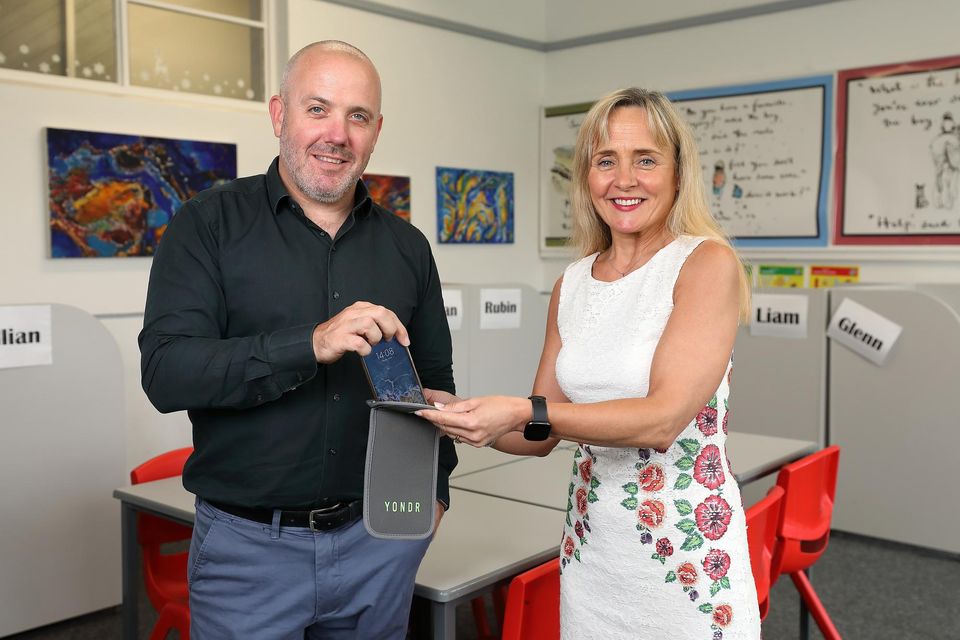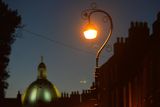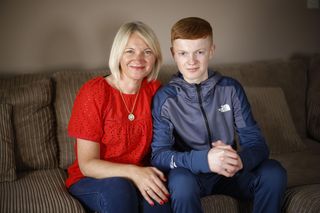‘We see it as giving them six hours of freedom’ – schools creating smartphone-free zones with help of special pouches
Principal Siobhan Foster and deputy principal Michael Kirwan, of De La Salle College, Churchtown, Dublin, with a Yondr phone pouch. Photo: Frank McGrath
An increasing number of school leaders are taking drastic action to ensure a phone-free learning environment.
At least 50 secondary schools are expected to be locking up students’ devices in bespoke pouches after the summer.
Each morning, students will be asked to put their devices into their personal Yondr pouch which locks automatically when closed.
They keep this with them during the day, but it can be unlocked only by tapping a circular magnet.
At De La Salle College in Churchtown, Co Dublin, the plan is the school caretaker will lay out the ‘unlocking bases’ for the pupils at the end of the day.
School principal Siobhan Foster said the initiative would improve well-being. They first consulted students, parents and the board of management to get buy-in.
Read more
“We had high compliance with our ‘no phone use in school’ rule, prior to the pandemic. On returning after that period of online tuition, it was much more challenging. Staff reported an increase in breaches of the rule and how time-consuming and disruptive it was to address phone use with students.
“Students have access to Chromebooks and have no need to use their phones for education reasons. Giving them a break [from their phones] also improves their social skills as they chat more and take part in extracurricular activities like chess, tennis or debating.
“We also believe this initiative will improve their mental health and well-being, if only to give them a break from the constant messages and influence of social media.
“Schools have a responsibility to create a safe environment in the school. No phones means we minimise the risk of cyber-bullying or breaches of child protection during the school day.”
Deputy principal Michael Kirwan said a three-day trial last month had already shown benefits.
“There were no real hiccups. A few practicalities such as students forgetting their pouch [meant] I took the phone for the day. I felt there was a bit more chat at breaktime,” he said.
“We wanted to do it in such a way that it is not seen as a sanction. As a school, we see it as we are giving them six hours of freedom.”
Yondr was launched in San Francisco in 2014. Sarah Leader, who is based in Dublin and looks after Irish schools for Yondr, could not confirm the exact number signed up, because some schools are in varying stages of the decision process.
“We are meeting with principals every day, all eager to work with us to eliminate the many issues phones are causing,” she said. "We had estimated 50 schools by September, but we are sure to surpass that now. Interestingly, I’ve had a number of parents phoning me, because Yondr is being used in one of their children’s schools and they’re eager for information on how they can persuade their other child’s school.”
It is also used for entertainment purposes – for example, Bono’s November gig in the Olympia used them and the audience in the Tommy Tiernan show have to “pouch up”.














